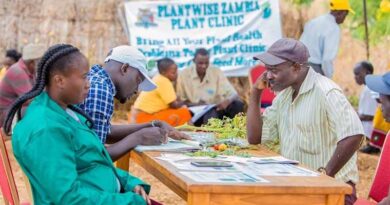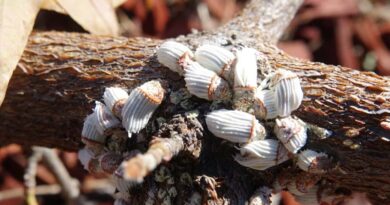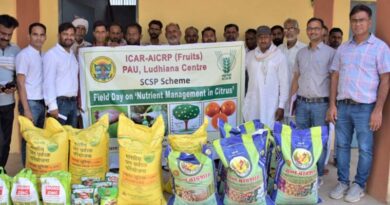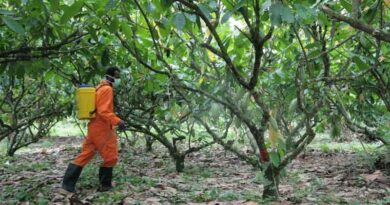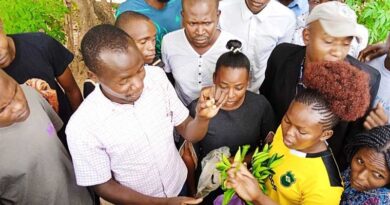Project launched to improve marketing of pawpaw, mango, avocado and citrus fruits by managing invasive scale insect pests in Eastern Africa
09 June 2023, Africa: A new project has been launched to help improve market access for pawpaw, mango, avocado, and citrus by managing invasive scale insect pests in Eastern Africa – particularly Kenya, Uganda and Burundi.
The three-year project will seek to increase compliance with sanitary and phytosanitary (SPS) requirements for the fruits through improved surveillance and management of scale insect pests. These include false yellow scale (Pseudaulacaspis cockerelli), snout scale (Fiorinia proboscidaria) and black parlatoria scale (Parlatoria ziziphin).
Small insects, specifically adult females, typically have soft bodies, sometimes no limbs, and may be concealed on the underside of plants meaning they often go unnoticed or are misdiagnosed as a disease. They attack by inserting their tiny, straw-like mouthparts into the bark, fruit, or leaves.
The pests attack important crops and plants that are integral to the countries’ economies and in some cases have been known to cause devastating crop yield losses of up to 91%.
An inaugural steering committee meeting has also been held for the project, which is funded by the Standards and Trade Development Facility (STDF), at the Kenya Plant Health Inspectorate Service (KEPHIS) headquarters in Nairobi, Kenya.
CABI is joining partners, including KEPHIS, the Kenya Agricultural and Livestock Research Organization (KALRO), the National Museums of Kenya and the Fresh Produce Exporters Association of Kenya (FPEAK), to deliver the project.
In addition to the project steering committee members, the project launch brought together additional representatives from government and private sector institutions including the Ministry of Agriculture and Livestock Development (MALD), Agriculture and Food Authority (AFA) and the Horticulture Crops Directorate (HCD).
The trade in mango, avocado, pawpaw, and citrus within the East African Community (EAC) region, EU and China at the import and export levels has been on the increase recently but its success is dependent on tackling a range of crop pests and diseases. Regional pest risks to production and trade include scale insects that are not only damaging to crops but also other plant host species.
In Eastern Africa, introduced mealybug pests, for example, include Papaya mealybug (Paracoccus marginatus) which impacts cultivation and yields of pawpaw, cassava, vegetables and other alternative hosts such as Citriculus mealybug (Pseudococcus cryptus) on citrus and fruit tree mealybug (Rastrococcus invadens).
Dr MaryLucy Oronje, Project Manager and Scientist, SPS, based at CABI’s regional centre for Africa in Nairobi, said, “Agriculture is a mainstay of the East African economy employing up to 80% of its people and accounting for around 25% of the GDP.
“However, expansion of the sector and its ability to improve livelihoods and food security is impeded by sanitary and phytosanitary systems that need improving – particularly in respect of scale insects and their impact upon pawpaw, mango, avocado, and citrus.
“This project in partnership will aim to strengthen the capacity of Kenya, Uganda and Burundi to monitor and mitigate these risks before export to increase intra-regional trade and export to more favourable global markets.”
KEPHIS Managing Director Prof. Theophilus Mutui says scale insects are quarantine in nature and this impedes trade. “We are therefore excited about this project that will help improve market access for our produce and will enable us to inform and educate farmers on how to mitigate scale insects. The program also covers East Africa hence the opportunity to collaborate with our counterparts in the region in mitigating the pest.”
Part of the project will involve training agricultural extension staff and plant protection officers on the identification of scale insects and communicating their risks and how they can be managed with smallholder farmers.
Also Read: Dhanuka Agritech further strengthens its herbicide portfolio with two new selective herbicides
(For Latest Agriculture News & Updates, follow Krishak Jagat on Google News)


